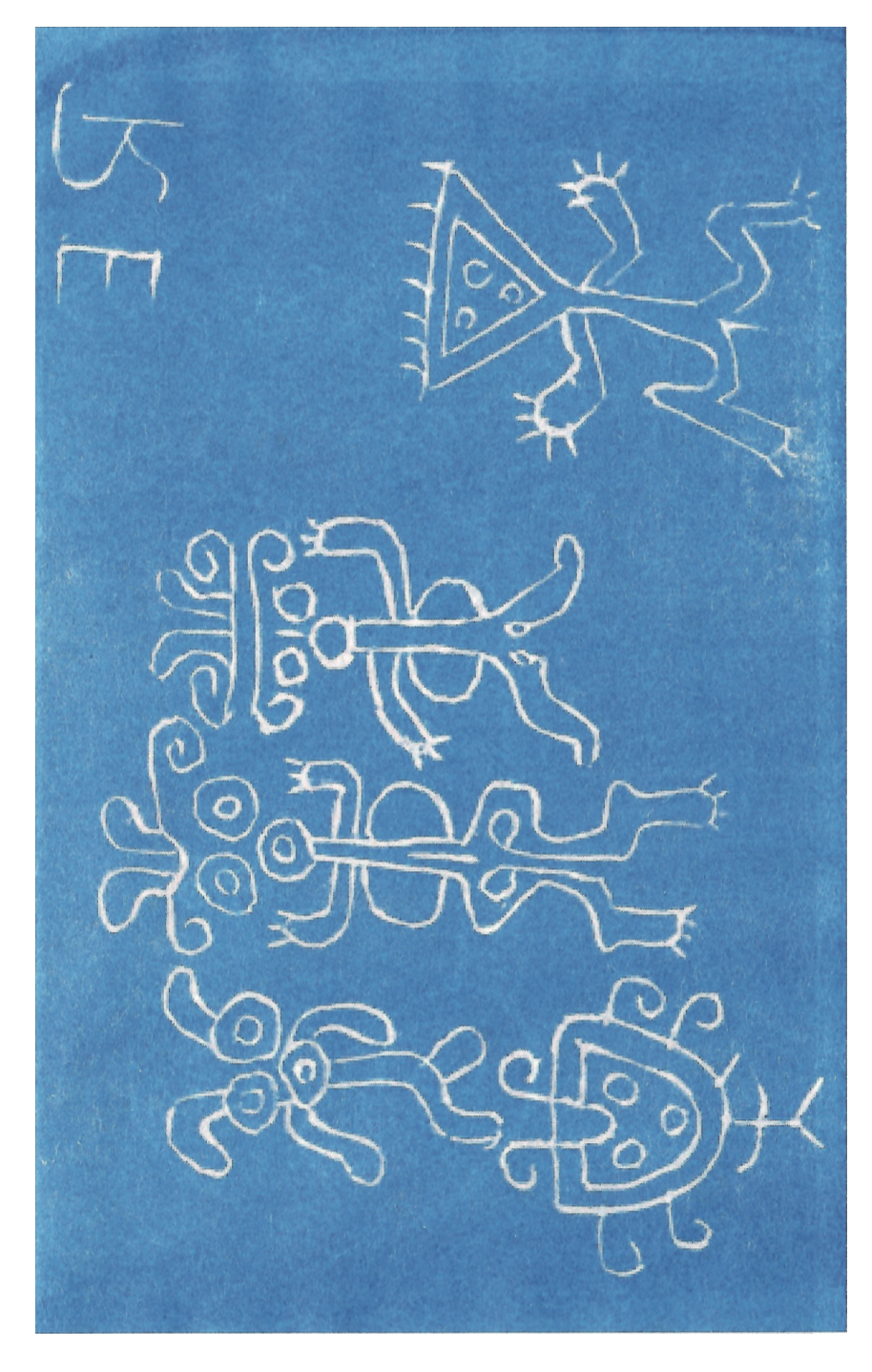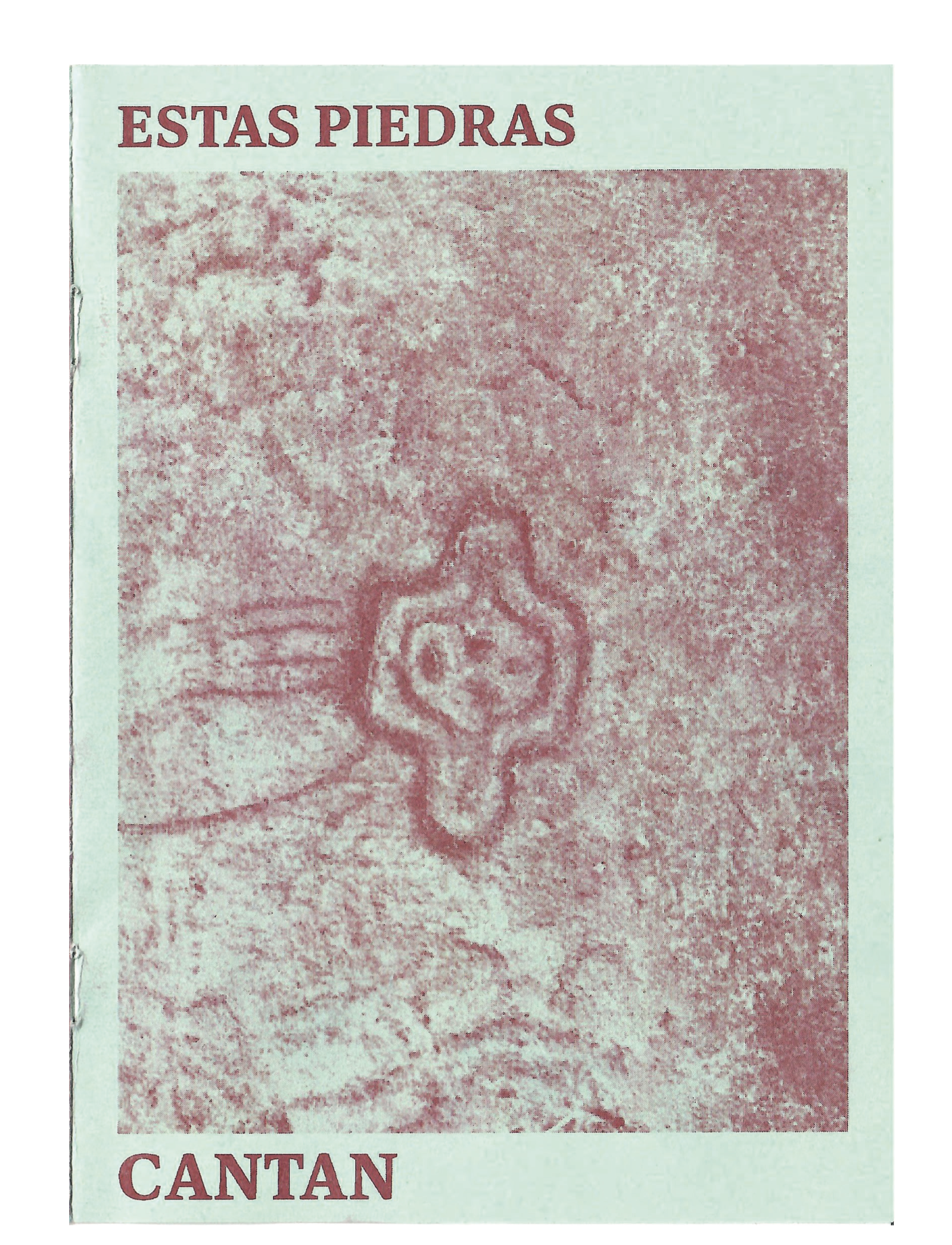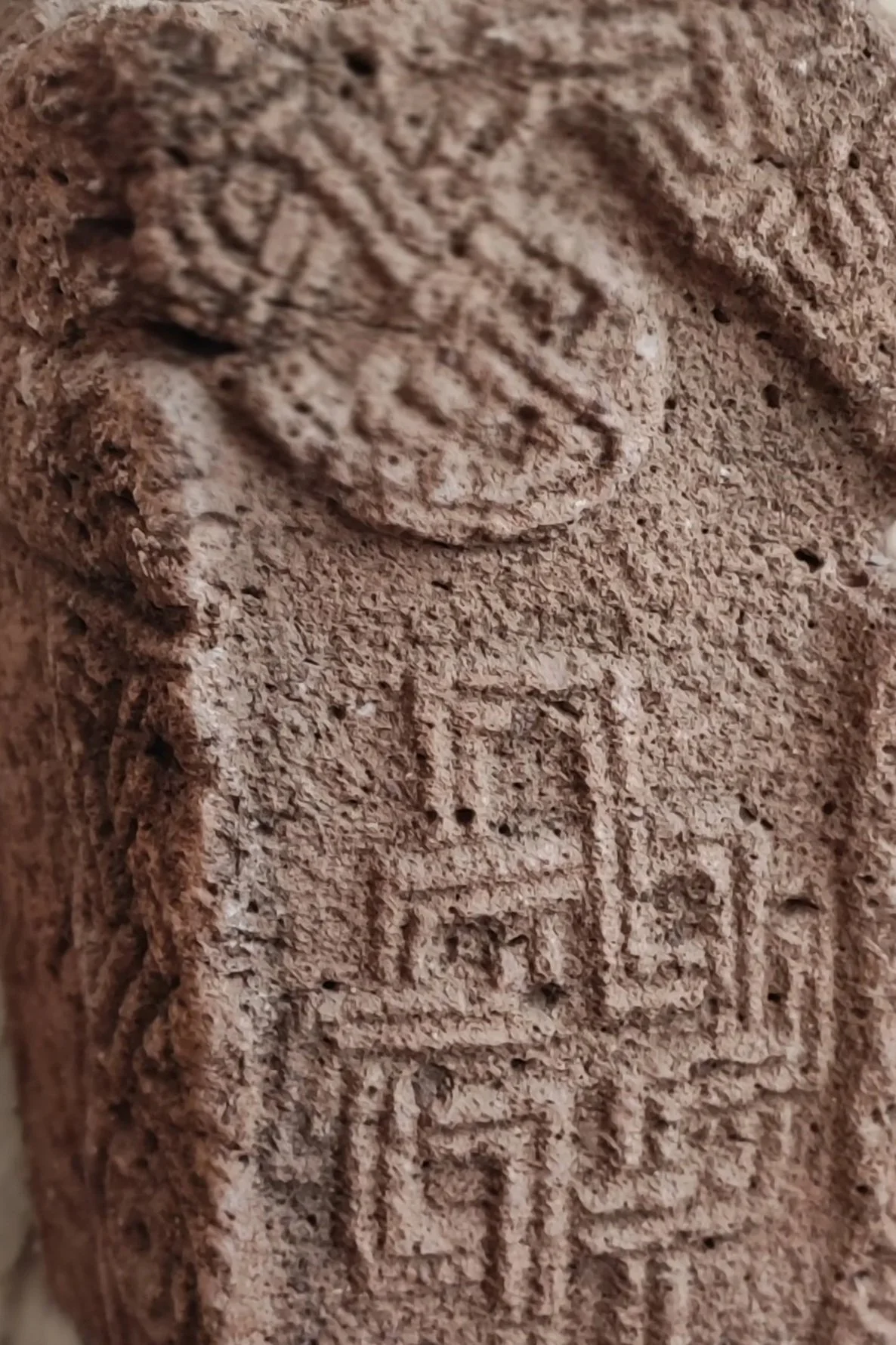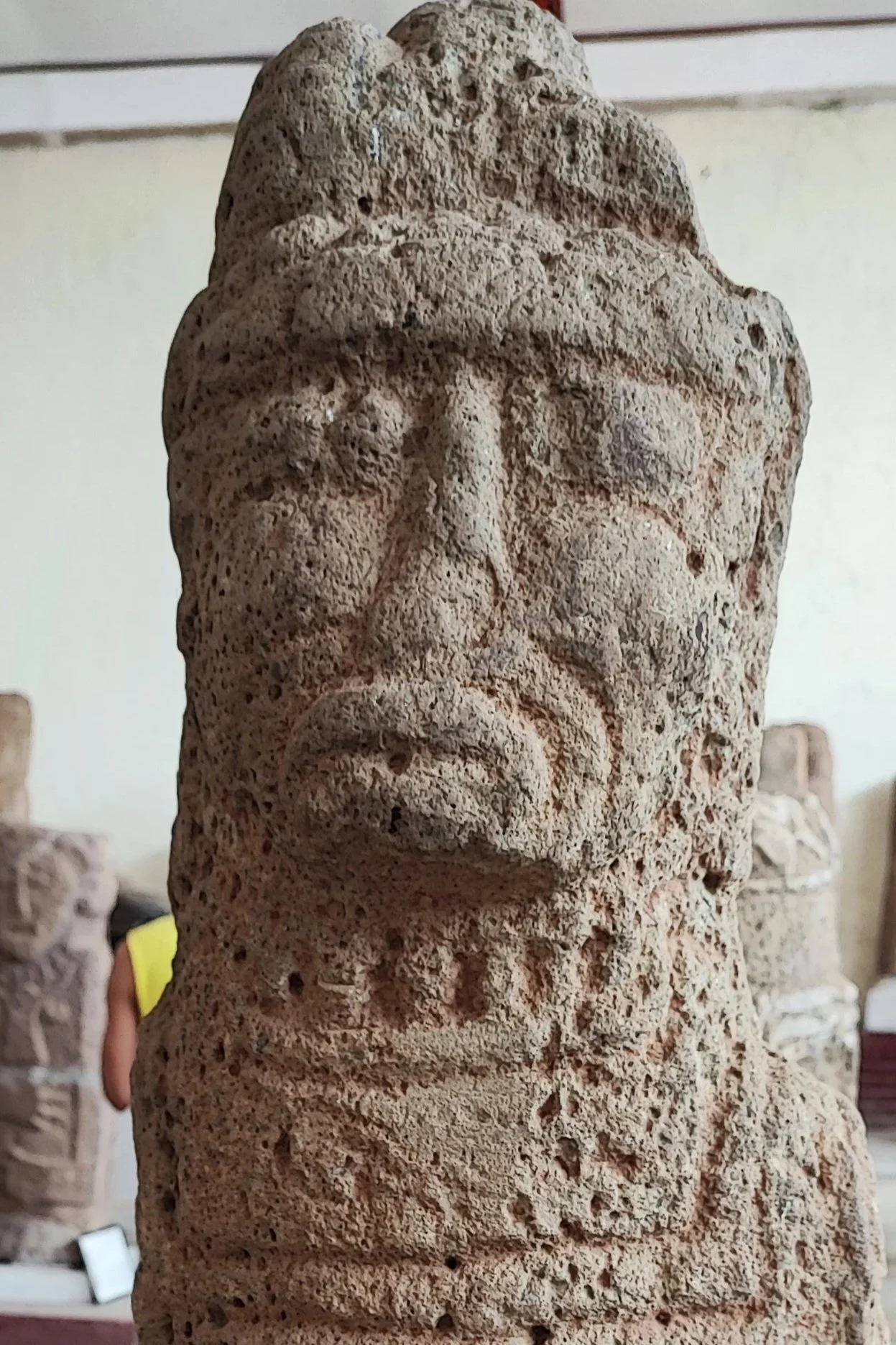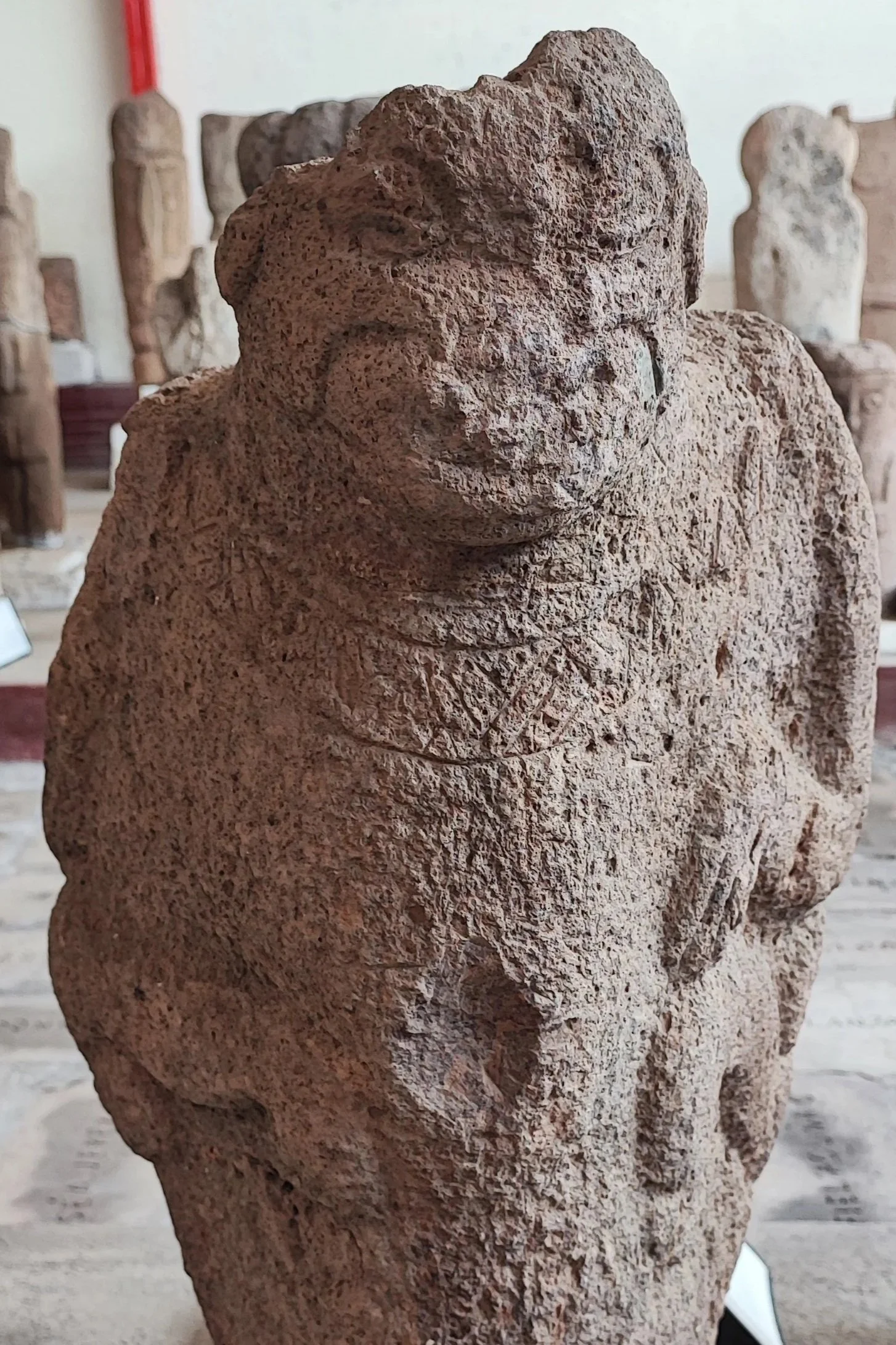CHONTALLI AQUÍ, CHONTALLI ALLÁ
Where do we come from? Elyla asks this question recognizing that, in Chontales, Nicaragua, there remains a profound erasure about the ancestry, cosmovision, and culture of their ancestors. Chontales comes from the Nahuatl chontalli, which means “strange, strange, foreign, out of place.” In trying to reconstruct their ancestry, they begin their project “Chontalli here, chontalli there; pilgrimage for an amatory of the not belonging” which they inaugurate with the performance Yugo Chontal. The action was carried out in Panama because, in their own country, they cannot carry out interventions in public spaces. With this installation and video-performance they build an open archive which, in a subjective, broken, and embodied way, opens a creative possibility, an exercise that goes beyond the idea of political borders to understand the world differently, a shared world that expands the affections and blurs the sense of belonging.
PEREGRINACIÓN CHONTAL PARA UNA AMATORIA DEL NO PERTENECER
Please contact artist for password
Exhibition view, Yugo Chontal
Yugo Chontal
2024
Videoperformance
Single Channel Video
06m10s
Yugo Chontal
2024
Photo by Alvaro Manriquez
Fine Art Inkjet Print
80 cm x 60cm
Ed. 1/5 + 2 AP
ESTAS PIEDRAS CANTAN
FANZINE CHONTAL
“Estas piedras cantan” fanzine, was the result of the Xylography Workshop held in the community of Villa Sandino, Chontales, Nicaragua. The workshop participants made engravings inspired by the petroglyphs found at the “Piedras Pintadas” Archaeological Park located at the center of their town.
The participants reflected on the political-affective impact of the origin of their name as Chontaleños coming from the Nahuatl ‘Chontalli’ —with its root ‘chontal’ meaning “strange, foreign, out of place”— on their personal stories. The technique of engraving and poetic narrative were the instruments that helped the participants to redefine the idea of being Chontal as an exercise of community belonging and not as an insult. This collective effort intends to revive the intrinsic connection with their ancestry and explore the meanings of a Chontal worldview rooted in their memories, history and territory.
“Estas piedras cantan” will be presented and shared with the community of Villa Sandino (Chontales). The intention is to awaken the curiosity and pride of its community for their Chontal identity anchored in a deeper understanding of their cultural heritage facing colonial mestizo imposed narratives. The fanzine contains provocative questions and poetry written by the artist, Elyla who grew up in this community.
Territory: Chontales, Nicaragua
Brothers
They utter that I am strange, bizarre, out-of-place By these mountains it is said that the rivers
are made of milk and the stones of cuajada
But I seek honey to place underneath my tongue
Chontal sisters of Mesoamérica
Have your arms and paths open?
Tell me, brethren
From which memories are borne
those of us who, before and after the colonial wounds, were exonamed as strangers?
Tell me the stories of those who resist behind the glister of our eyes
I miss... the blooming rage
I miss... the sacred cry
I miss... the spirits of the forest,
I strange
They utter, those who have lost themselves in the reflection of themselves
You see, over here, wherein the rivers are made of milk and the stones of cuajada, in reality, the rivers have always been made of water and the stones have been the grand-mothers
Ergo, I commence this Chontal trek towards an amatory of the non-belonging
— Translation by Ramses Kunts
Territorio: Chontales, Nicaragua
Hermanos
Dicen que soy extraño, raro, fuera de lugar
Por estas montañas se cuenta que los ríos son de leche y las piedras son cuajadas
Pero yo busco miel para poner debajo de mi lengua
Hermanos chontaleños de Oaxaca
¿Tendrán ustedes sus brazos y caminos abiertos? Cuéntenme hermanos
¿De qué memorias/historias nacemos las que antes y después de la herida colonial (llegada españoles) nos nombraban como extraños?
Cuéntenme las memorias/historias de los que resisten detrás del brillo de nuestros ojos
Yo extraño...la sana rabia
Yo extraño.... el llanto sagrado
Yo extraño.... los espíritus del bosque
Yo, extraño
Dicen, los que se perdieron en el reflejo de ellos mismos
Y es que, por aquí, donde los ríos son de leche y las piedras de cuajada, en realidad, los ríos siempre han sido de agua y las piedras siempre han sido las abuelas.
Por eso inicio a esta peregrinación chontal para una amatoria del no pertenecer.
Lenongumiya: Tsome, Nicaragua
Pimaye
Diwayi nin tsome, eyga-onspola
Ijlta-a jlijualey diwayi lan paney gi-ik lifujka wagash y lapik gishnan’e.
Ma’iya gabey el gujuá gaponomma al onjk’a gey pajl.
Pimaye tsome jlijualaj pala.
¿Dojlwejme imank buk’o gamane y lane gashiya?
Lu-ijla pimaye
¿jale gojltsina li-iwalepa lajl manta li-ipa y lo-iya lishk’eya gashtilano, lagipon’ga ogona gishans?
Lu-ijla laluyeygopa petsi lijl-omek’ lishpula dundilo lajl u-u.
Iya gashbejmojle... al bueno gashtuya Iya gashbejmojle...lajok’iya gipashniya Iya gashbejmojle...loyepa gawa gimuk’o Iya gashbejmojle
Diwayi, lejak’epojltsi lawejma gijltuga.
Ifa-a, petsi lan paney gi-ik lifujka wagash y lapik gishnan’e, al jlinka, lan paney lipajma gi-ik aja y lapik lipajma gi-ik la nana.
Dojli’ya gapangojma ijlta-a gawalegoya tsome gajanajya al a-i gajlejmaley.
— Translation to Tsome (Chontal)
Cipriano Vázquez Zárate
Roselia Vázquez Zárate






